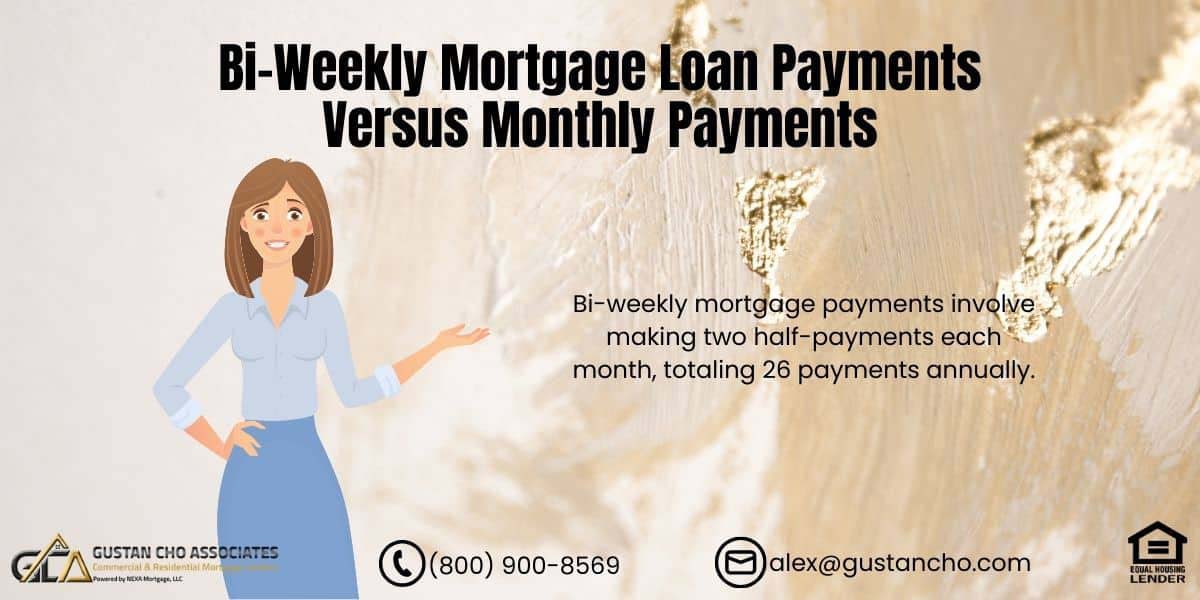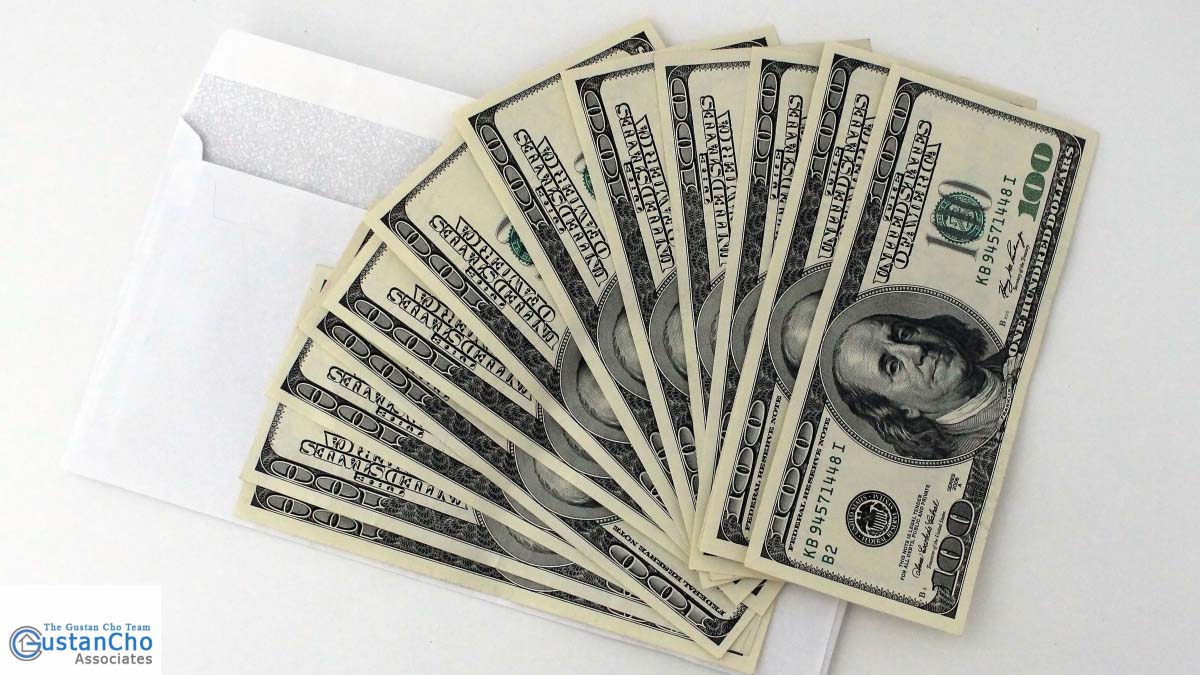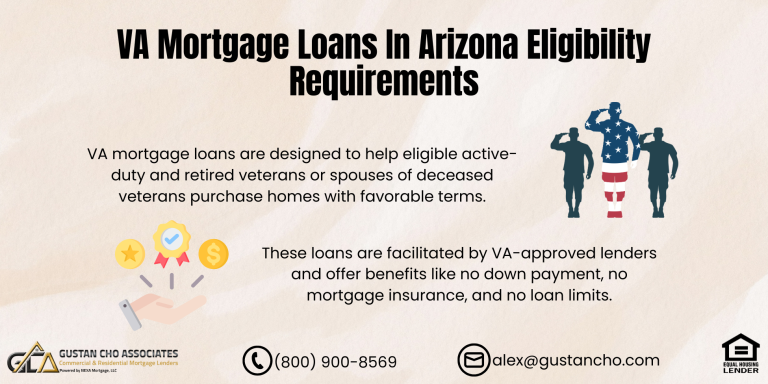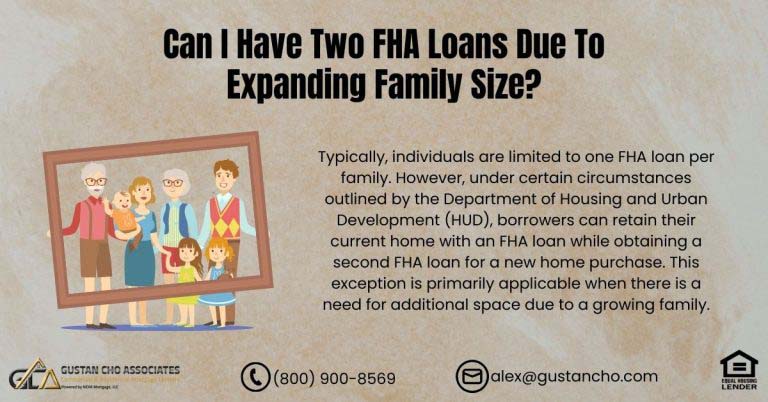Transitioning from monthly to bi-weekly mortgage loan payments can be a strategic move for homeowners looking to expedite their mortgage payoff. Borrowers who choose bi-weekly payments make payments equal to half of their monthly payments every two weeks. This results in 26 half-payments or 13 full payments over a year. Making this additional payment can significantly impact the term of the loan and the total interest paid over time.
One key advantage of bi-weekly mortgage loan payments is the accelerated principal balance reduction. By making frequent payments, homeowners can chip away at the loan amount faster, leading to an earlier loan payoff. Additionally, the consistent and disciplined approach of bi-weekly payments can instill financial discipline and help borrowers stay on track with their mortgage obligations.
While bi-weekly payments offer substantial benefits, homeowners must understand the logistics and potential pitfalls. Lenders might impose charges for establishing bi-weekly payment plans; not all provide this alternative. To obtain the greatest benefits from this payment method, homeowners should thoroughly review their loan conditions, converse with their lenders, and verify that bi-weekly payments are handled accurately.
How do Bi-Weekly Mortgage Loan Payments Versus Monthly Payments Work
Bi-weekly mortgage Loan Payments are a structured method for handling mortgage payments that can offer significant benefits over time. This flexible payment approach can be utilized with various loan programs, including FHA, VA, USDA, Conventional, Jumbo, and Non-QM Loans.
Rather than the standard monthly payment, borrowers make two half-payments each month, aligning with the 52 weeks in a calendar year. This bi-weekly schedule results in 26 payments annually, effectively adding up to one extra per year.
The advantage of Bi-Weekly Mortgage Loan Payments lies in the potential for accelerated debt repayment and reduced interest costs. By making an additional payment each year, borrowers can chip away at their principal balance faster, leading to earlier loan payoff and potentially significant savings on interest over the life of the loan. This approach particularly appeals to those looking to shorten their mortgage term and build home equity more rapidly.
Borrowers considering Bi-Weekly Mortgage Loan Payments must understand the financial implications and calculate potential savings. Despite the potential advantages of quicker debt elimination and interest savings, it is important to make sure that using this payment strategy aligns with your financial goals and budget.
Consulting with a mortgage professional can provide personalized insights and help determine if Bi-Weekly Mortgage Loan Payments are suitable based on individual circumstances.
Bi-Weekly vs. Monthly Mortgage Payments—Which Saves You More?
See How Much You Could Save With Bi-Weekly Payments!
Does Bi-Weekly Mortgage Loan Payments Really Work?
Absolutely, bi-weekly mortgage loan payments can make a significant impact. Homeowners can reduce the interest paid over time by making payments every two weeks instead of monthly.
In fact, this strategy can shorten the repayment term by up to 4 years on a 30-year mortgage. This happens because the extra payment made each year goes directly toward reducing the loan’s principal balance rather than being applied to interest charges.
It is important to consider additional fees charged by the loan servicer for processing bi-weekly payments, which may affect their effectiveness. Homeowners should take note of these potential fees and factor them into their decision when determining whether to switch to a bi-weekly payment schedule.
Understanding the options and potential benefits of bi-weekly mortgage loan payments empowers borrowers to make informed decisions about managing their mortgage debt.
Is it Better to Pay Loans Bi-Weekly or Monthly?
Deciding between bi-weekly and monthly loan payments depends on your financial goals, budgeting capabilities, and loan terms. Here are some considerations to help you determine which option may be better for you:
- Interest Savings: Bi-weekly payments can lead to interest savings over time because you’re making more frequent payments, reducing the outstanding balance faster. This can result in paying off the loan earlier and paying less total interest. However, the difference in savings may vary based on your loan’s interest rate and terms.
- Budgeting and Cash Flow: Bi-weekly payments align with bi-weekly pay schedules for many people, making it easier to budget and manage cash flow. On the other hand, monthly payments may be simpler for some borrowers to track and manage within their monthly budget.
- Lender Policies and Fees: Some lenders offer bi-weekly payment options without additional fees, while others may charge setup fees or require you to use a third-party service. Understanding your lender’s policies regarding bi-weekly payments and any associated costs is essential.
- Discipline and Consistency: Bi-weekly payments require discipline and consistency to maintain, as you need to ensure you have funds available for each payment cycle. Monthly payments may be more straightforward for those who prefer a schedule without frequent adjustments.
Ultimately, your decision should be based on your financial habits, comfort level with budgeting, and the specifics of your loan and lender policies. To make an informed choice, calculate the potential interest savings and compare the convenience of each payment frequency.
Pay Off Your Mortgage Faster With Bi-Weekly Payments
Calculate Your Savings With a Bi-Weekly Payment Plan Now!
How Much Faster Do You Pay Off a Mortgage With Bi-Weekly Payments?
If you make mortgage payments every two weeks instead of monthly, you can pay off your loan faster. The time you save will depend on your loan amount, interest rate, and loan terms. However, here’s a general idea of how bi-weekly payments can expedite your mortgage payoff:
- Extra Payment Per Year: With bi-weekly payments, you make 26 half-payments or 13 full payments in a year instead of 12 monthly payments. This extra payment goes directly toward reducing your loan’s principal balance.
- Accelerated Principal Reduction: By making extra payments annually, you can speed up paying off your mortgage’s principal balance, resulting in substantial savings on interest over the loan’s lifespan.
- Shortened Loan Term: The accelerated principal reduction from bi-weekly payments can result in paying off your mortgage earlier than the original loan term. The time saved varies depending on your loan amount, interest rate, and loan term length.
For example, if you have a 30-year fixed-rate mortgage and switch to bi-weekly payments, you could pay off your loan several years earlier, depending on how much extra you can pay each year. To determine how bi-weekly payments will affect your mortgage payoff timeline, it’s important to check with your lender or use a mortgage calculator. This will help you estimate the impact of bi-weekly payments on your mortgage.
Other Options Of Saving Money For Homeowners
Consider adding ½% to your monthly mortgage payment for bi-weekly payments, such as adding $100 to a $1,200 monthly payment. This approach offers flexibility, allowing you to skip the extra payment if needed without worrying about service fees.
However, exercise caution when opting for bi-weekly payments. Ensure that your servicer permits and applies such payments correctly to reduce the monthly principal balance. Before initiating bi-weekly payments on your own, consult with your lender to avoid penalties and ensure the accurate application of payments.
Other Ways to Pay Down Your Mortgage Faster
If bi-weekly mortgage payments don’t work for you, there are alternative ways to reduce your mortgage:
- Save money monthly in a separate account and make one additional mortgage payment annually.
- To reduce the principal, make an extra monthly payment directly to the mortgage company, separate from your regular payment.
- Before changing your payment method, ensure you understand all terms and precautions.
Refinancing to consolidate debt and monthly expenses, then applying the savings to make extra principal payments and reduce your mortgage faster.
If you have any questions about Bi-Weekly Mortgage Loan Payments Versus Monthly Payments or you need to qualify for loans with a lender with no overlays on government or conforming loans, please contact us at Gustan Cho Associates at 800-900-8569. Text us for a faster response. Or email us at alex@gustancho.com. The team at Gustan Cho Associates is available 7 days a week, on evenings, weekends, and holidays.
FAQ: Bi-Weekly Mortgage Loan Payments Versus Monthly Payments
- 1. How do Bi-Weekly Mortgage Loan Payments Versus Monthly Payments Work? Bi-weekly mortgage payments involve making two half-payments each month, totaling 26 payments annually. This accelerates debt repayment and reduces interest costs, particularly appealing to those aiming to pay off their mortgage faster.
- 2. Do bi-weekly Mortgage Loan Payments Really Work? Yes, they can significantly reduce interest costs and shorten the repayment term, typically up to 4 years on a 30-year mortgage. However, consider potential fees from your loan servicer when opting for bi-weekly payments.
- 3. Is it Better to Pay Loans Bi-Weekly or Monthly? It depends on your financial habits and loan terms. Bi-weekly payments offer interest savings and align with bi-weekly pay schedules. Still, monthly payments may be simpler for budgeting.
- 4. How Much Faster Do You Pay Off a Mortgage With Bi-Weekly Payments? Bi-weekly payments can expedite loan payoff by several years, depending on your loan amount and payment frequency. Check with your lender or use a mortgage calculator for specific timelines.
- 5. Other Options of Saving Money for Homeowners? If bi-weekly payments don’t suit you, consider making extra annual payments, refinancing to reduce expenses, or consulting a mortgage professional for personalized advice.
This blog about Bi-Weekly Mortgage Loan Payments Versus Monthly Payments was updated on April 9th, 2024.
Bi-Weekly or Monthly? Choose the Mortgage Payment Plan That Works for You
Talk to a Loan Expert About Your Best Payment Strategy Today!










